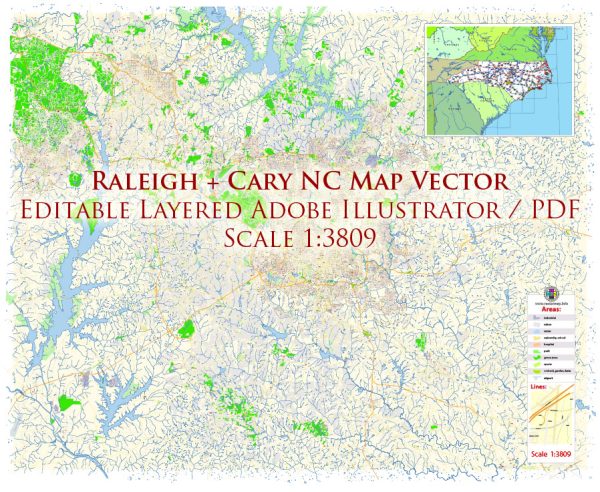Raleigh, Cary, and Durham are three prominent cities in the Research Triangle region of North Carolina, each with its own unique history and contributions to the state’s development. Here is a brief overview of their historical significance:
- Raleigh: Raleigh is the capital of North Carolina and was founded in 1792. The city is named after Sir Walter Raleigh, an English explorer and sponsor of the Roanoke Colony. Raleigh was established as the state capital to replace Fayetteville, primarily due to its more central location within North Carolina. It was intentionally situated in a geographically neutral area to foster unity between the eastern and western parts of the state. Over the years, Raleigh has grown to become a major political, economic, and cultural hub in North Carolina.
- Cary: Cary, a town located in Wake County, is situated in close proximity to Raleigh. It was originally founded as a settlement named Bradford in the 1750s, and it was renamed Cary in 1859 in honor of Samuel Fenton Cary, a prominent prohibitionist and congressman. Cary remained a small, agrarian community for much of its history. However, it experienced significant growth in the latter half of the 20th century, particularly after the construction of Research Triangle Park. Cary has developed into a thriving, suburban community and is known for its excellent quality of life and strong sense of community.
- Durham: Durham, also located in the Research Triangle region, has a rich history deeply tied to tobacco production and higher education. In the late 19th and early 20th centuries, Durham was a center of the tobacco industry and home to the American Tobacco Company, one of the largest tobacco corporations in the world. The city’s identity became intertwined with the tobacco culture.
Furthermore, Durham is known for its prominent universities. Duke University, established in 1838, has had a significant impact on the city’s growth and development. In addition to Duke, Durham is home to North Carolina Central University, which is historically significant as one of the nation’s leading historically Black universities.
Throughout its history, Durham has evolved from a tobacco and industrial center to a diverse and vibrant city with a focus on education, healthcare, and technology. The city’s revitalization efforts have turned former tobacco factories into bustling cultural and entrepreneurial spaces, helping to shape its modern identity as a dynamic urban center.
The Research Triangle region, which includes Raleigh, Cary, and Durham, is known for its strong focus on research and technology, thanks in large part to the presence of major universities and Research Triangle Park, a hub for innovative companies and research institutions. Together, these cities have played a crucial role in North Carolina’s development and continue to contribute significantly to the state’s economic and cultural life.


 Author: Kirill Shrayber, Ph.D. FRGS
Author: Kirill Shrayber, Ph.D. FRGS